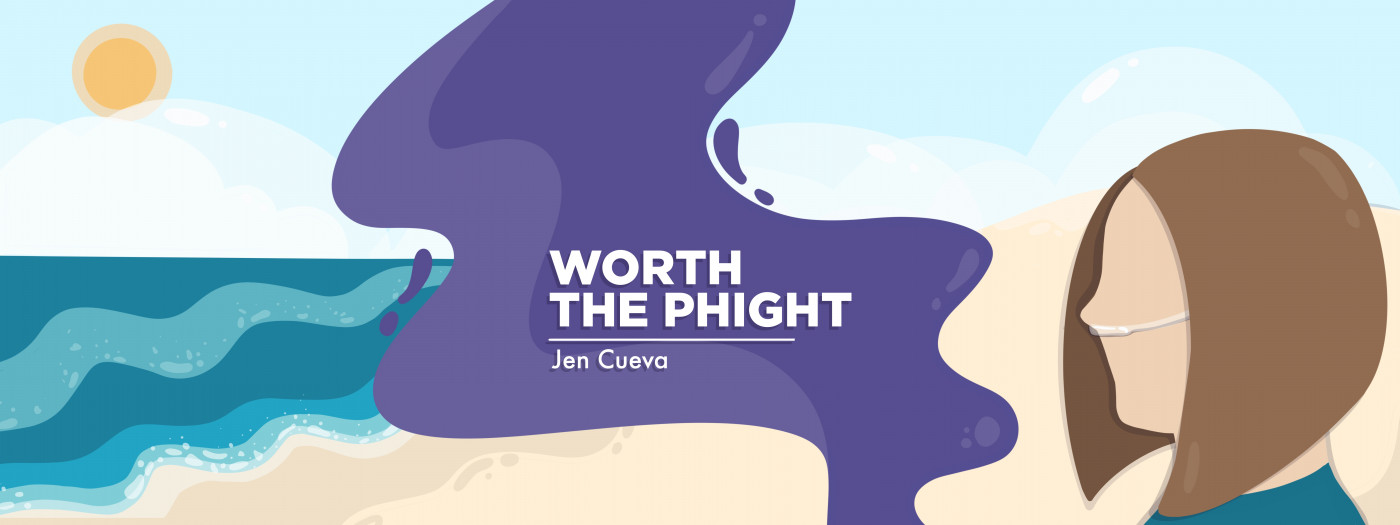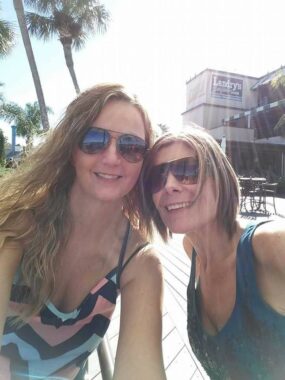How my friend and I bond all the more because of our rare diseases
A fellow mother talks about her condition before National Sarcoidosis Day
Written by |

The spacious wooden table, covered with vibrant sprinkles and pieces of sugar cookies, holds cherished memories of years ago. Our three daughters were gathered around it, the youngest seated in her high chair, all filled with excitement while making cookies and decorating Easter eggs.
These festive moments were customary with one of my closest friends, Gwen Favero. As the children enjoyed their activities, Gwen and I shared stories and laughter, cherishing the bond we’d built during these holiday celebrations.
We met when my daughter, KK, was around 4 years old; Gwen has four daughters, three of whom were around with KK and only a year or so younger than her. Our friendship began when we moved just a few houses away from her and her family; we instantly bonded. Gwen also helped with my daughter while I attended nursing school and my husband, Manny, worked night shifts.
Despite having her hands full with her own young children, she would casually remark, “One more is nothing.” Gwen treated KK like one of her own, and over time, she became affectionately known as Aunt Gwen.

Gwen, left, and Jen enjoy Kemah Boardwalk in November 2017 on one of Gwen’s trips to Texas. (Courtesy of Jen Cueva)
Gwen and I share so much more than raising our daughters together. She’s a single day older than me, for instance.
And more than that, we faced life-changing diagnoses during our friendship — pulmonary hypertension (PH) in 2005 for me, and sarcoidosis in 2022 for Gwen. With April being Sarcoidosis Awareness Month, culminating with National Sarcoidosis Day on April 30, I share her journey to inspire and uplift others with rare disease.
I’m grateful for Gwen’s willingness to share her story openly through email and phone. Below are some highlights from our conversation.
JC: What emotions did you experience when you heard you had sarcoidosis, a rare disease?
GF: At first, I was relieved to finally have a diagnosis. I’m lucky it wasn’t lymphoma, which I was told they had to also rule out from my biopsies. I did know about sarcoidosis because my daughter’s father-in-law has it. He had to have a lung transplant. But they said I would be OK because I am Caucasian, and it’s known that African Americans, like him, are three times as likely to be diagnosed with sarcoidosis and tend to have more severe symptoms than Caucasians.
Did your healthcare team educate you?
No, I didn’t have a knowledgeable doctor at the time of my diagnosis. I was told I had sarcoidosis. He handed me a prescription for prednisone and antibiotics and said, “Go live your life.” This left me with fears of the unknowns. That’s when the emotional roller coaster began.
I ended up in the hospital when my symptoms worsened. I was moody with a variety of mixed emotions. I’m unsure if it was the side effects of the prednisone, fears of the unknown, or running on little sleep. The best that came from this hospital stay was finding a new pulmonologist. He has experience with sarcoidosis patients in New York after 9/11. His experience makes me feel more comfortable.
In what ways has your everyday life changed since your diagnosis?
Everyday tasks are challenging now. Tasks like showering and washing my hair have become such a chore — the same with putting on makeup. Now, there are some days I don’t have the energy to put into myself. Most of my clothes are on the main floor because going up 14 stairs is exhausting. This causes me to experience breathlessness. Thankfully, I am still working, but that, too, has decreased in hours. No matter how much I sleep, I feel fatigued most days.
Did your diagnosis remind you of my PHight with PH?
When I struggle with breathing, I think of you and how you had to become dependent on oxygen. It gives me anxiety to think that may be me one day. But you make it look easy. I hope if one day I need it, I can adapt as well as you.
JC: That’s so kind, but I, too, struggled with using my oxygen in public for a bit. However, I knew my body needed it once I noticed some improvements.
My closing thoughts
Gwen credits the love and support of her family and friends as the reasons she can push through even her worst days. She also recommends staying positive, surrounding yourself with supportive people who understand what you’re going through, and sharing her story to create awareness. Most important, she encourages newly diagnosed patients to find a good doctor knowledgeable about sarcoidosis because it can be unpredictable and complicated.
Now that our daughters have grown up, our conversations have evolved. Surprisingly, in coping with our rare diseases, we’ve discovered yet another shared interest. As lifelong friends, we’ll continue to PHight together in this battle!
Note: Pulmonary Hypertension News is strictly a news and information website about the disease. It does not provide medical advice, diagnosis, or treatment. This content is not intended to be a substitute for professional medical advice, diagnosis, or treatment. Always seek the advice of your physician or other qualified health provider with any questions you may have regarding a medical condition. Never disregard professional medical advice or delay in seeking it because of something you have read on this website. The opinions expressed in this column are not those of Pulmonary Hypertension News or its parent company, Bionews, and are intended to spark discussion about issues pertaining to pulmonary hypertension.





Leave a comment
Fill in the required fields to post. Your email address will not be published.